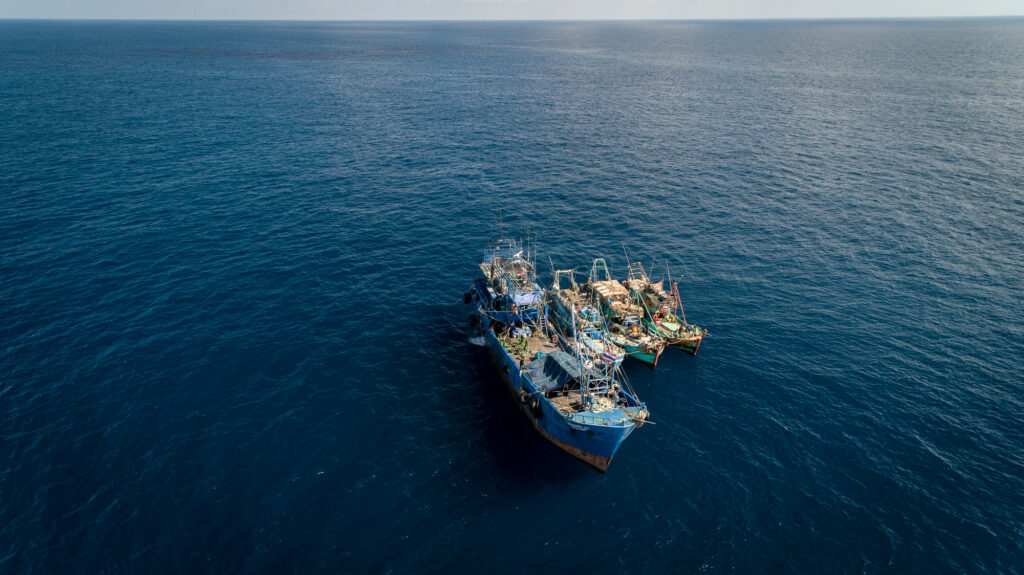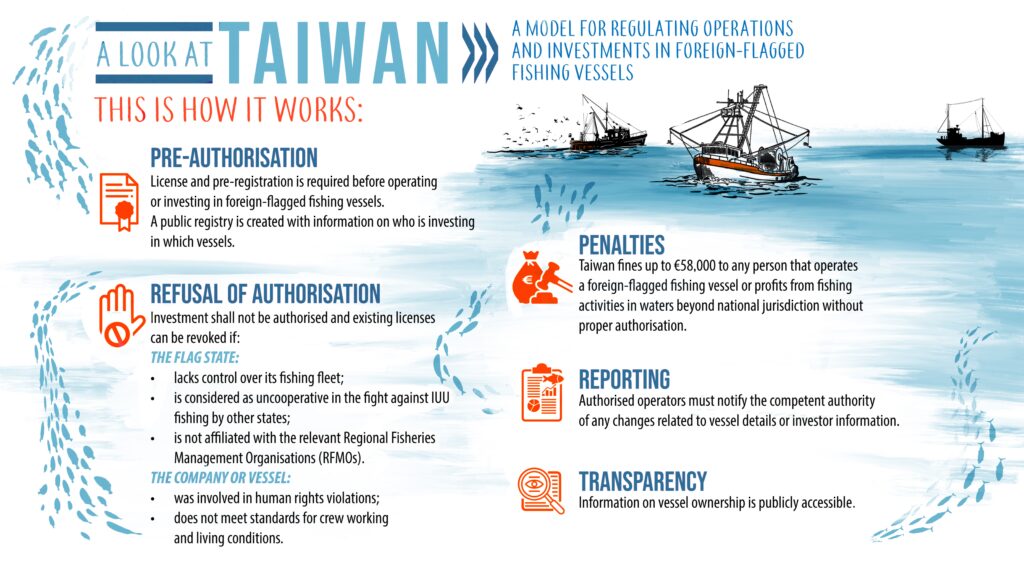Illegal, unreported, and unregulated (IUU) fishing poses a significant threat to marine ecosystems and the livelihoods of law abiding fishers and coastal communities worldwide. Yet, identifying the true beneficiaries of fishing vessels engaged in these activities (beneficial owners) is not an easy task. The opaque nature of the global fisheries sector often allows beneficial owners to hide behind foreign flags and complex corporate structures to evade sanctions and scrutiny.

European Union (EU) law clearly forbids EU nationals—both individuals and companies—to support or engage in IUU fishing, including as a beneficial owner. Following the 2024 revision of the EU’s fisheries control system, ownership of vessels flagged to countries deemed non-cooperative in combating IUU fishing (or “red carded”) is also strictly prohibited. However, most EU Member States still lack adequate frameworks for identifying nationals with ownership links to foreign-flagged vessels involved in these illicit activities. For example, Senegal has recently been yellow carded, or warned, by the EU for its inadequate action in the fight against IUU fishing, yet some vessels flagged to Senegal are EU-owned. This gap in oversight could allow profits from IUU fishing to flow back into the EU.
A new brief by EJF, Oceana, Pew, and WWF, members of the EU IUU Fishing Coalition discusses the relevant EU regulations and their implementation by Member States, analyses best practices inside and outside of the EU and sets forward recommendations to increase beneficial ownership transparency and ensure that EU nationals profiting from IUU fishing activities under a foreign flag can be identified:
EU Member States must:
- Introduce mandatory reporting requirements for nationals to disclose any legal, beneficial, or financial interests in fishing vessels flagged to non-EU countries.
- Establish public national registers to centralise information on nationals with interests in foreign-flagged vessels.
- Proactively investigate ownership links to vessels suspected of IUU fishing, with a focus on those flagged to high-risk countries.
- Foster formal cooperation initiatives with non-EU countries to identify national offenders.
- Upload beneficial ownership information into the relevant fields of the FAO Global Record.
The European Commission must:
- Establish dedicated working groups to guide Member States in implementing IUU regulations and initiate infringement procedures against persistent offenders.
- Facilitate information exchange and develop a cohesive plan for collecting beneficial ownership data of non-EU vessels.
EU Member States and the European Commission must:
- Actively promote beneficial ownership transparency in international fora.
- Actively endorse and support the Global Charter for Fisheries Transparency.
Drawing inspiration from Taiwan’s Regulatory System
Taiwan’s comprehensive system for regulating operations and its investments in foreign-flagged fishing vessels serves as a potential model for the EU. This approach includes having publicly accessible information on beneficial ownership, prior registration of investments in foreign-flagged vessels, refusal of authorisation to fish under specific circumstances, and significant penalties for engaging in activities without proper approval.

The fight against IUU fishing requires coordinated action at national and international levels. By implementing these measures, the EU can spearhead global efforts to combat illegal fishing while promoting transparency, accountability, and responsible fishing practices.
